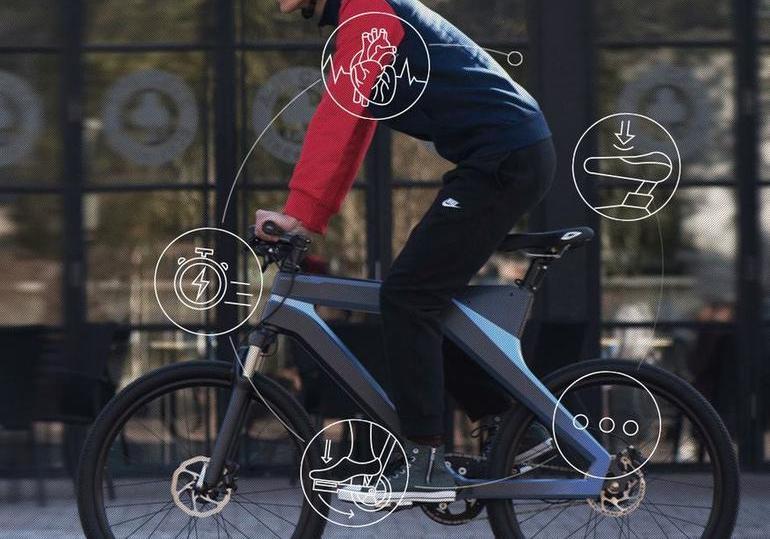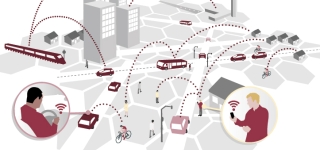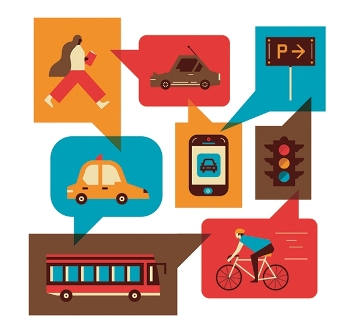
Cyclists and Public Bike Sharing – the best kept secret in Smart City data collection?
The market value of data in the age of the Internet of Things was estimated at US$19 trillion per year by the CEO of CISCO in 2014, of which $4.6 trillion was public sector savings – cities working better through interconnectivity.
In the world of Smart Cities, Intelligent Transport Systems and the Internet of Things data is gold.
Billions in improved services, on demand advertising, reduced waste, increased energy demand, in fact just about any field of urban life can be connected.
And mobility is at the core. People moving around cities are good news when they are spending money, consuming goods but at the same time they are placing constant strain on city infrastructure such as public transport or creating pollution for fellow citizens.

Our colleague Benedicte Swennen has written a summary of how cities can collect data about cycling to inform transport planning and infrastructure design, but in this article we took a look at the other side of the spectrum, cyclists and bikes as a broader data source and market for cities and businesses.
Bike share is particularly powerful as an information source about people’s mobility habits. For example article posted by Todd Schneider in 2016 took the publically available data from New York’s public bike sharing to paint pictures of riders and usage “A Tale of Twenty-Two Million Citi Bike Rides: Analyzing the NYC Bike Share System”. In it he points out that there is enough data almost to pinpoint individual users.
Given that much of the early development of Bike Share schemes was led by advertisers such as JC Decaux and Clear Channel it doesn’t take a great leap of imagination to consider targeted advertising to those users individualised for the journeys they make – and to transmit it to the bike, the Smart phone or the docking station where the ride ends. On a cold day in New York I would happily end my ride with a warm cup of coffee personally offered to me by the café just over the road – win win for rider and advertiser.
Bike share is particularly powerful because it integrates with public transport, increasingly with combined ticketing and journey planning – so called Mobility as a Service. This means multiple opportunities for data capture and for sending useful data back to the user. The other great feature of bike share is the turnover – with the best bike share scheme seeing bikes used up to 10 times per day each vehicle is capturing multiple data sets about multiple users – far more powerful content than a car parked for 8 hours per day or a full bus.
Where the future of data really points
Some topics are easy – such as preferred routes and congestion points. This lovely visualisation of the Netherlands waking up one day and going to work on their bikes is a thing of beauty, both to cyclists and planners.
But with the right attachments a bike is a weather monitor, an air quality detector, noise detector and a vibration monitor, telling the city in real time exactly what is happening at street level. Theft detection and accident reporting are already being incorporated in products from ECF Industry Club member See.Sense. This more intensive data capture is facilitated by bikes that have regular access to a power supply – which means especially bike share bikes or e-bikes.

I would also like my bike to do my tax return – or at least the part where I claim my allowance for cycling off the state or my employer. Why wait for the end of the year, I’ll have my payment now.
Go further – what about health monitoring? Heart rate monitors built into hand grips are standard in gyms and remote detection is available for medical diagnostics – this sort of information could easily be combined and transmitted to my doctor. Hopefully he or she will be really pleased about how much exercise I am getting and I can claim a bigger discount on my health insurance next year.
So where’s the catch?
It’s fairly simple – who can own, access and use the “big data” that can come from cycling?
Each week we at ECF meet city managers, big companies and small businesses who are working with data for and about cyclists. But when we ask the question “who else uses your data?” remarkably few have a strategy for being part of the multi-billion dollar data market. Many don’t even share data within their local city. Some of this is lack of knowledge about the potential, but also it is about entrepreneurial small and medium companies who don’t have the capacity to partner up with the global information technology players that serve major cities with their Smart City and ITS needs.
And that’s where Smarter Cycling comes in. We are committed to cycling taking its place in all mobility markets, not just the physical services on the ground. Our first Smarter Cycling event on 30th August 2016 will start the process.
One of our keynote speakers will be Lorcan Burke, Global Chief Technical Officer Mobility at Cisco Systems who will share the vision for global mobility of one of the world’s technology giants.
ECF is kicking off a series of activities to bring together the partners who could become the future of connected cycling. Smart City managers, software and application developers, bike share operators and connected bike makers. We have proved that the companies we work with can leave competition at the door and collaborate for the greater good of cycling and of our society, while at the same time learning how to move forward into future markets. It could be legal advice on privacy, technical content on open standards, knowledge of the policy and funding contexts. In fact it could be as simple as introducing innovators from around the world and building relationships.
If you want to read more about the Smarter Cycling Conference we are organising at Eurobike, just click here
Regions:
News category:
Network/Project Involved:
Contact the author
Recent news!
Upcoming events
Contact Us
Avenue des Arts, 7-8
Postal address: Rue de la Charité, 22
1210 Brussels, Belgium









